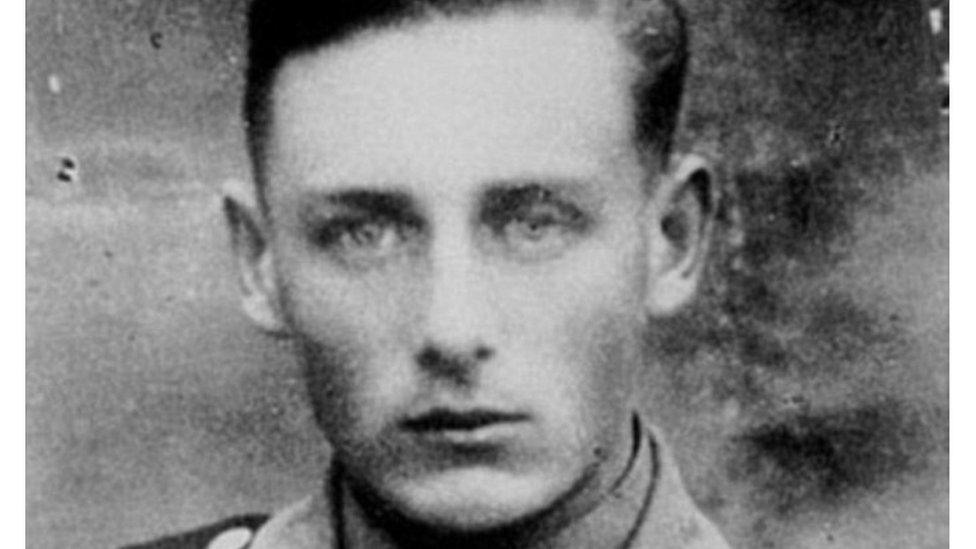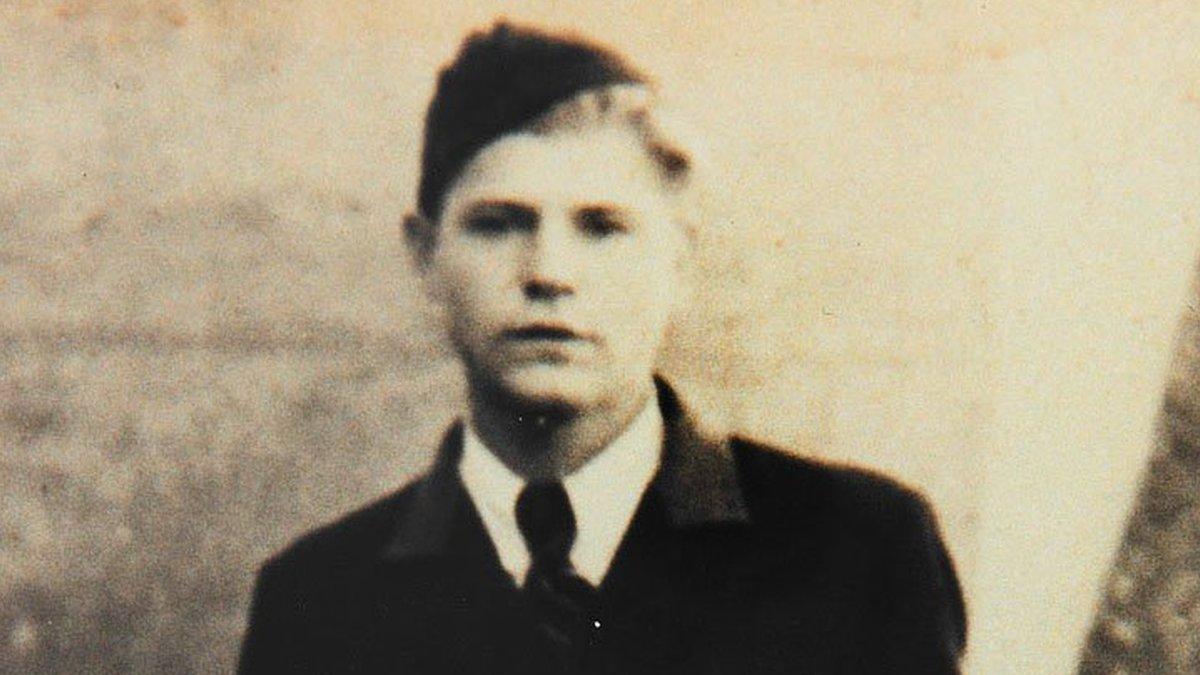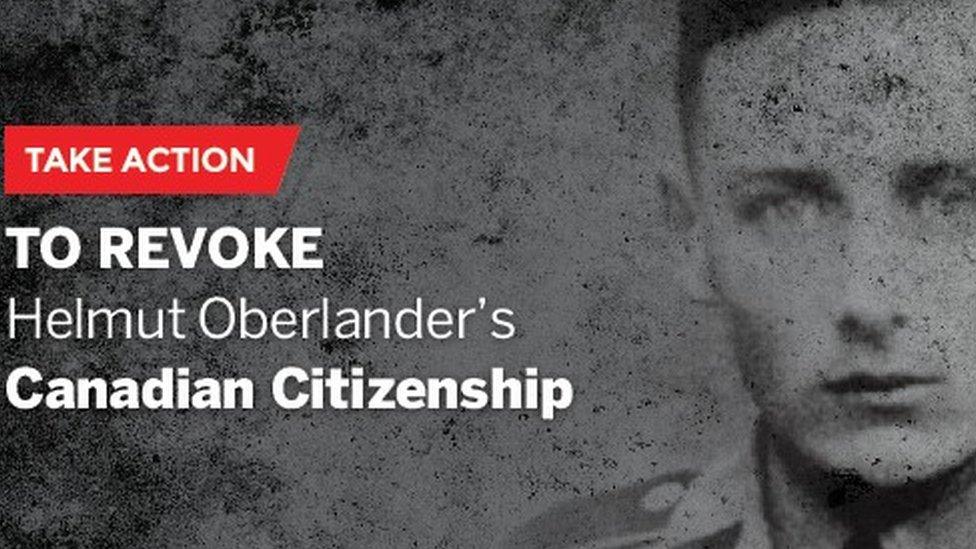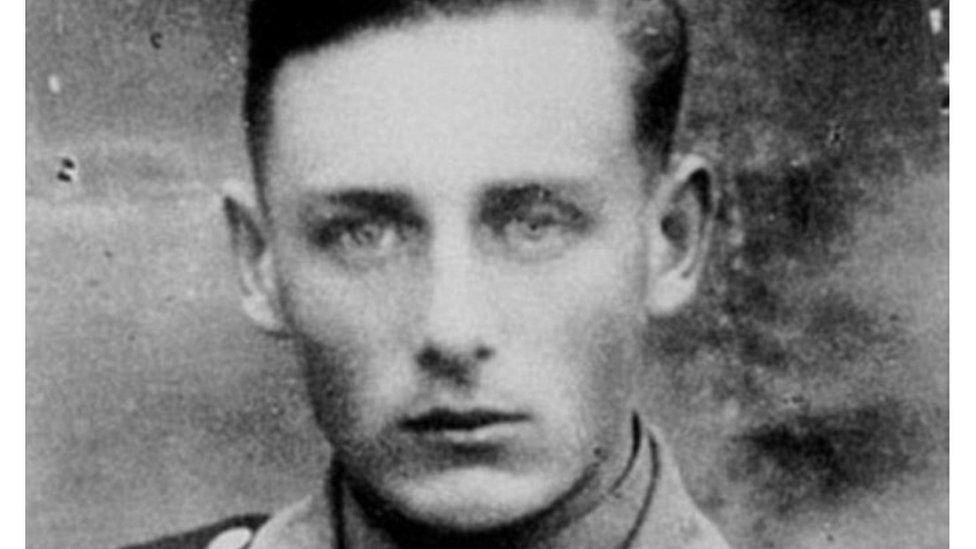Helmut Oberlander: Ex-Nazi death squad interpreter dies at 97 in Canada
- Published

Groups such as the Centre for Israel and Jewish Affairs want Helmut Oberlander's citizenship revoked
A man believed to be Canada's last suspected Nazi war criminal has died aged 97.
Helmut Oberlander had been fighting the Canadian government's latest effort to revoke his citizenship over his involvement with a Nazi death squad.
He admitted to working as a translator with the squad, but maintained he had been forcibly conscripted at age 17 and did not participate in the atrocities.
Born in Ukraine, Oberlander first became a Canadian citizen in 1960.
His death at his home in Waterloo, Ontario, was confirmed by his family, who released a statement to local media. They portrayed the former real estate developer as a community-minded man, devoted to his family.
"Notwithstanding the challenges in his life, he remained strong in his faith. He took comfort in his family and the support of many in his community," the statement said, according to the Globe and Mail newspaper.
Oberlander came to Canada in 1954. The country had revoked his citizenship and attempted to deport him three times since 1995. Each time he appealed.
The government said when Oberlander first applied for citizenship he had knowingly concealed he had been an auxiliary of the Einsatzkommando, a force that operated behind the German army's front line in the Eastern occupied territories.
The squad is responsible for killing more than two million people, many of them Jewish people.
In his court appeals, Oberlander had argued that he had no alternative than to work for the Germans, and would have been subject to the harshest penalties had he disobeyed.
Oberlander was the last of 12 Canadians who were alleged to have been involved with Nazi-era crimes but died before the government could complete the proceedings to deport them, according to the Globe and Mail.
In an interview with local newspaper the Waterloo Region Record in 2000, Oberlander had promised "to fight this case until death do us part, or until I run out of money and have to put a mortgage on my house, whatever comes first".
Related topics
- Published24 March 2021

- Published7 July 2016

- Published26 July 2017
